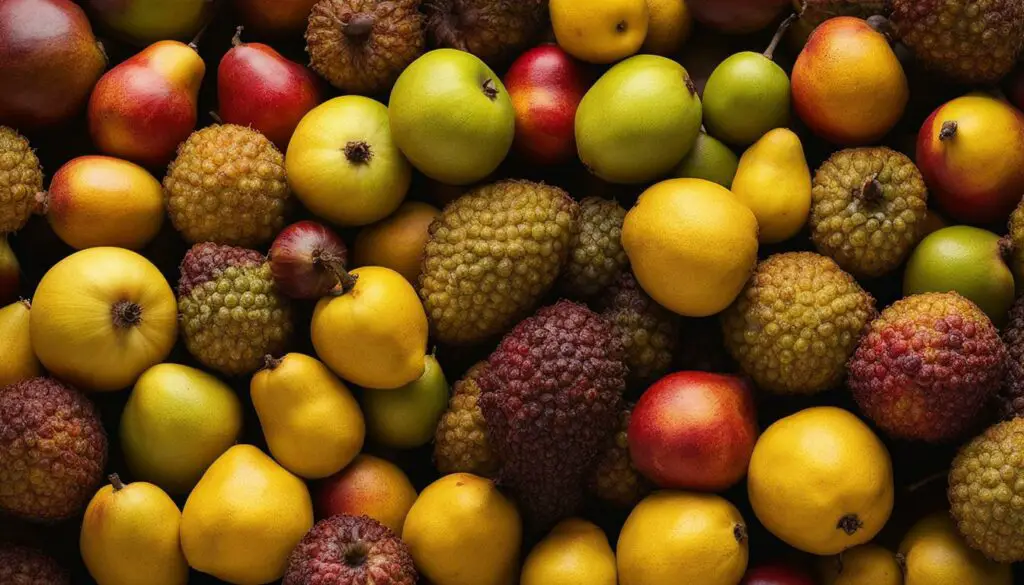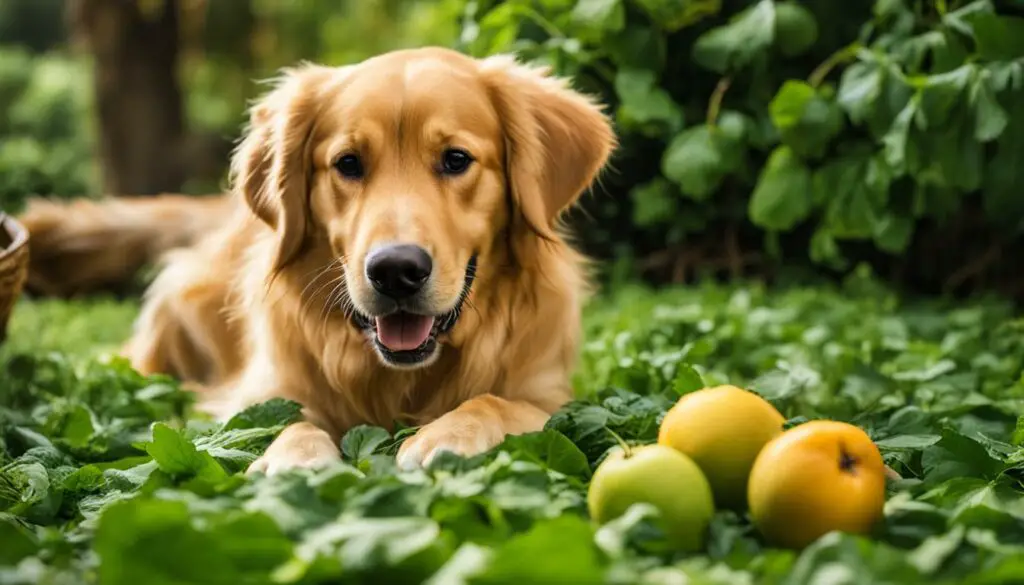Greetings, fellow dog lovers! Today, I want to address a fruit that has been raising some eyebrows in the dog community – lanzones. Many pet owners are curious about the safety of feeding lanzones to their furry friends and whether or not there are any potential benefits. Well, buckle up, because I’m here to shed some light on this tropical fruit and its relationship with our canine companions.
Lanzones, also known as langsat or Lansium parasiticum, is a tropical fruit that can be a bit of a mixed bag when it comes to dogs. While the pulp of lanzones is safe for dogs to consume and offers some health benefits, it’s crucial to note that the seeds are toxic and can pose a risk to a dog’s health. Therefore, it is essential to properly prepare lanzones and remove the seeds before feeding them to our furry friends.
So, if you’re one of those pet parents who are curious about incorporating lanzones into your dog’s diet or simply want to learn more about the potential risks and benefits, you’re in the right place. Let’s dive deeper into the world of lanzones and its compatibility with our beloved canines.
Key Takeaways:
- While the pulp of lanzones is safe for dogs to consume, the seeds are toxic and should be removed before feeding lanzones to dogs.
- Lanzones, also known as langsat or Lansium parasiticum, is a tropical fruit that offers some health benefits to dogs.
- Feeding lanzones to dogs can pose potential risks due to the seeds’ mild toxicity, so it’s best to stick to fruits that are known to be safe for dogs.
- Properly preparing lanzones by removing the seeds and washing the fruit is crucial for the safe consumption of lanzones for dogs.
- The nutritional value of lanzones includes various vitamins and minerals, but there aren’t any proven specific benefits for dogs.
What Are Lanzones?
Lanzones, also known as langsat or Lansium parasiticum, are small, round fruits native to Southeast Asia. They are characterized by their sweet and sour taste and juicy flesh. Lanzones grow in clusters on the Lansium parasiticum tree and have a thin, leathery, yellowish skin that is easily peeled off. Inside, the fruit is divided into five or more segments, each containing one to two dark, inedible seeds.

Lanzones offer a unique sensory experience with their combination of sweetness and tanginess. Their translucent flesh is prized for its juiciness, making them a refreshing tropical treat.
However, it is essential to note that while the flesh of lanzones is safe for consumption, the seeds are mildly toxic and should be avoided. Removing the seeds is crucial before feeding lanzones to dogs to prevent any potential harm to their health.
Nutritional Content of Lanzones
Lanzones are not only delicious but also packed with various essential nutrients that can contribute to a balanced and healthy diet for dogs. Let’s take a closer look at the nutritional value of lanzones:
Vitamins and Minerals
Lanzones contain a range of vitamins and minerals that are beneficial for dogs’ overall health. They are a good source of vitamin C, which supports the immune system and helps with collagen production. Lanzones also provide vitamins B1, B2, and B3, which are important for energy production and enzyme function. Additionally, they contain minerals such as calcium, magnesium, and potassium, which play a vital role in maintaining healthy bones, muscles, and heart function.
Dietary Fiber
Lanzones are rich in dietary fiber, which can promote healthy digestion and regulate bowel movements in dogs. Fiber helps to prevent constipation and can aid in weight management by providing a feeling of fullness without adding excess calories. Including lanzones in your dog’s diet can contribute to a well-rounded and fiber-rich meal plan.

Incorporating lanzones into your dog’s diet can provide them with a range of important vitamins, minerals, and dietary fiber. However, it is crucial to remember that the seeds of lanzones are toxic and should be removed before feeding the fruit to dogs. Additionally, because lanzones are not a staple food for dogs, they should be offered in moderation as a treat rather than as the main component of their meals. As always, it’s important to consult with your veterinarian before introducing any new foods into your dog’s diet to ensure their safety and well-being.
Can Dogs Eat Lanzones?
When it comes to feeding lanzones to dogs, caution is advised. While the pulp of a lanzones fruit is safe for dogs to consume, the seeds can be toxic and harmful to their health. It is crucial to remove the seeds before offering lanzones to your furry friend. However, it’s important to note that there aren’t any proven specific benefits of lanzones for dogs. In fact, it is best to prioritize fruits that are known to be safe for dogs, such as apples, bananas, and blueberries, which offer various vitamins and minerals to support their overall health.
Feeding dogs lanzones with seeds can potentially pose risks, as the seeds contain mild toxins that could cause discomfort, vomiting, or diarrhea, depending on the quantity consumed. To ensure the safe consumption of lanzones for dogs, it is essential to take precautions. Thoroughly remove the seeds from the pulp before feeding your dog lanzones, and wash the fruit to eliminate any potential harmful substances from the skin. It is also advisable to limit the frequency of offering lanzones to dogs, as the fruit has limited nutritional benefits for them.
While it’s natural to want to expand your dog’s diet with different fruits, it’s crucial to prioritize their nutritional needs and consult with a veterinarian for any dietary concerns or questions. By maintaining a balanced diet and avoiding potentially harmful fruits like lanzones, you can ensure your furry friend stays happy and healthy.

Summary:
- The pulp of a lanzones fruit is safe for dogs to consume, but the seeds are toxic and should be removed.
- There aren’t any proven specific benefits of lanzones for dogs, so it’s best to prioritize other safe fruits.
- Feeding lanzones with seeds to dogs can pose potential risks due to the seeds’ mild toxicity.
- To safely feed lanzones to dogs, remove the seeds, wash the fruit, and limit the frequency of offering lanzones.
Safe Consumption of Lanzones for Dogs
When it comes to sharing lanzones with your furry friend, it’s crucial to ensure their safety and well-being. To achieve this, there are a few precautions you should take.
Removing seeds: Before offering lanzones to your dog, make sure to thoroughly remove all seeds. The seeds of the fruit are mildly toxic and can be harmful if ingested by dogs.
Washing the fruit: Prior to feeding lanzones to your dog, wash the fruit thoroughly to remove any potential harmful substances from the skin. This helps ensure that your dog consumes a clean and safe piece of fruit.
Limiting frequency: While the pulp of lanzones is safe for dogs to consume, it is important to remember that lanzones should not be a regular part of their diet. Offer lanzones sparingly as a treat rather than a primary source of nutrition. This helps maintain a balanced diet for your dog while avoiding any potential risks associated with consuming excessive amounts of lanzones.

By following these simple precautions, you can ensure the safe consumption of lanzones for your furry friend. Remember to always prioritize your dog’s nutritional needs and consult with a veterinarian if you have any concerns or questions.
Proper Serving Size for Dogs
When it comes to feeding lanzones to dogs, it’s important to offer the right serving size based on their weight. The following guideline can help ensure that your furry friend enjoys lanzones in a safe and appropriate amount:
| Weight | Serving Size |
|---|---|
| 5-15 lbs | 1 teaspoon |
| 16-30 lbs | 2 teaspoons |
| 31-60 lbs | 1 tablespoon |
| 61-90 lbs | 1.5 tablespoons |
| 91 lbs and above | 2 tablespoons |
By following this serving size recommendation, you can ensure that your dog enjoys the taste of lanzones without consuming too much or too little. Remember that moderation is key, and lanzones should be offered as an occasional treat rather than a regular part of their diet.
It’s essential to note that serving sizes may vary slightly depending on the individual needs and preferences of your dog. If you have any concerns or questions about the appropriate serving size for your specific dog, it’s always best to consult with your veterinarian for personalized advice.
Providing the proper serving size of lanzones can help ensure that your dog enjoys this tropical fruit safely and in a way that aligns with their nutritional needs. With the right portion, you can incorporate lanzones into their diet as a special treat, while also prioritizing their overall well-being.
Precautions When Feeding Lanzones to Dogs
When it comes to feeding lanzones to dogs, it’s important to take certain precautions to ensure their safety and well-being. Here are some key measures to keep in mind:
Removing Seeds
The seeds of the lanzones fruit are mildly toxic to dogs and can cause adverse effects if consumed. Before offering lanzones to your furry friend, make sure to thoroughly remove the seeds from the pulp. This will help prevent any potential toxicity and protect your dog’s health.
Washing the Fruit
Prior to feeding lanzones to your dog, always remember to wash the fruit thoroughly. This will help remove any harmful substances or pesticides that may be present on the skin. By cleaning the fruit, you can ensure a safer consumption experience for your four-legged companion.
Limiting Frequency
While the pulp of lanzones is safe for dogs to consume, it’s important to keep in mind that the fruit has limited nutritional benefits for them. To maintain a balanced diet for your dog, it’s best to offer lanzones sparingly as a treat rather than as a primary source of nutrition. This will help avoid any potential gastrointestinal issues and promote overall health.
By following these precautions, you can ensure the safe consumption of lanzones for your furry friend. Remember to always prioritize your dog’s well-being and consult with a veterinarian if you have any concerns or questions about their diet.
| Precautions When Feeding Lanzones to Dogs |
|---|
| Removing Seeds |
| Thoroughly remove the seeds from the pulp to avoid any potential toxicity. |
| Washing the Fruit |
| Wash the fruit thoroughly to remove any harmful substances or pesticides from the skin. |
| Limiting Frequency |
| Offer lanzones sparingly as a treat rather than as a primary source of nutrition to maintain a balanced diet. |
Alternative Fruits for Dogs
While lanzones may not be suitable for dogs, there are plenty of other fruits that are safe and beneficial for them. Here are some dog-friendly fruits that you can offer to your furry friend:
1. Apples
Apples are a great choice for dogs. They are rich in vitamins A and C, which support a healthy immune system. Apples also provide dietary fiber, aiding in digestion. Remember to remove the seeds and core before offering them to your dog, as these parts can be harmful.
2. Bananas
Bananas are packed with potassium, which helps maintain proper heart and muscle function in dogs. They are also a good source of fiber, promoting healthy digestion. However, due to their high sugar content, it’s best to offer bananas in moderation.
3. Blueberries
Blueberries are full of antioxidants, which can help fight free radicals and support overall health. They are also low in calories and rich in fiber, making them a nutritious snack option for dogs. Serve blueberries fresh or frozen, but avoid feeding them in large quantities as it may cause an upset stomach.
4. Cantaloupe
Cantaloupe is a refreshing treat for dogs, as it is high in water content and low in calories. It is also rich in vitamins A and C, promoting healthy skin and a strong immune system. Remember to remove the seeds and rind before offering cantaloupe to your dog.
5. Pears
Pears are a good source of vitamin C and dietary fiber, benefiting a dog’s digestion and immune system. They are also low in calories and fat. However, like apples, it’s important to remove the seeds and core before feeding them to your dog.

Conclusion
In conclusion, when it comes to feeding lanzones to dogs, caution is necessary. While the pulp of this tropical fruit is safe for dogs and offers some nutritional value, the toxic seeds pose risks to their health. It is crucial to properly prepare lanzones by removing the seeds before feeding them to dogs.
Although there aren’t any proven specific benefits of lanzones for dogs, there are plenty of alternative fruits that are safe and beneficial for our furry friends. Apples, bananas, blueberries, cantaloupe, and pears are all excellent options that provide vitamins, minerals, and fiber to support a dog’s overall health.
When introducing new fruits to a dog’s diet, it’s important to do so gradually and consult a veterinarian for any concerns or questions. Prioritizing a dog’s nutritional needs and avoiding potentially harmful fruits like lanzones is essential for their well-being. By maintaining a balanced diet, dogs can stay happy and healthy for years to come.
FAQ
Can dogs eat lanzones?
Dogs can safely consume the pulp of lanzones, but the seeds are toxic and should be removed before feeding lanzones to dogs.
Are there any benefits of lanzones for dogs?
While there aren’t any proven specific benefits of lanzones for dogs, they can be a healthy addition to their diet if fed without the seeds.
What are the risks of feeding lanzones to dogs?
Feeding lanzones to dogs with the seeds can be harmful, as the seeds are mildly toxic and can cause discomfort, vomiting, or diarrhea.
How much lanzones can dogs eat?
The serving size of lanzones for dogs varies based on their weight. Please refer to the guideline mentioned in the article to offer appropriate portions.
What precautions should be taken when feeding lanzones to dogs?
It is important to remove the seeds from the pulp, wash the fruit thoroughly, and limit the frequency of offering lanzones to dogs.
What are some alternative fruits safe for dogs?
Some dog-friendly fruits include apples, bananas, blueberries, cantaloupe, and pears. These fruits offer various vitamins and minerals that support a dog’s health.








